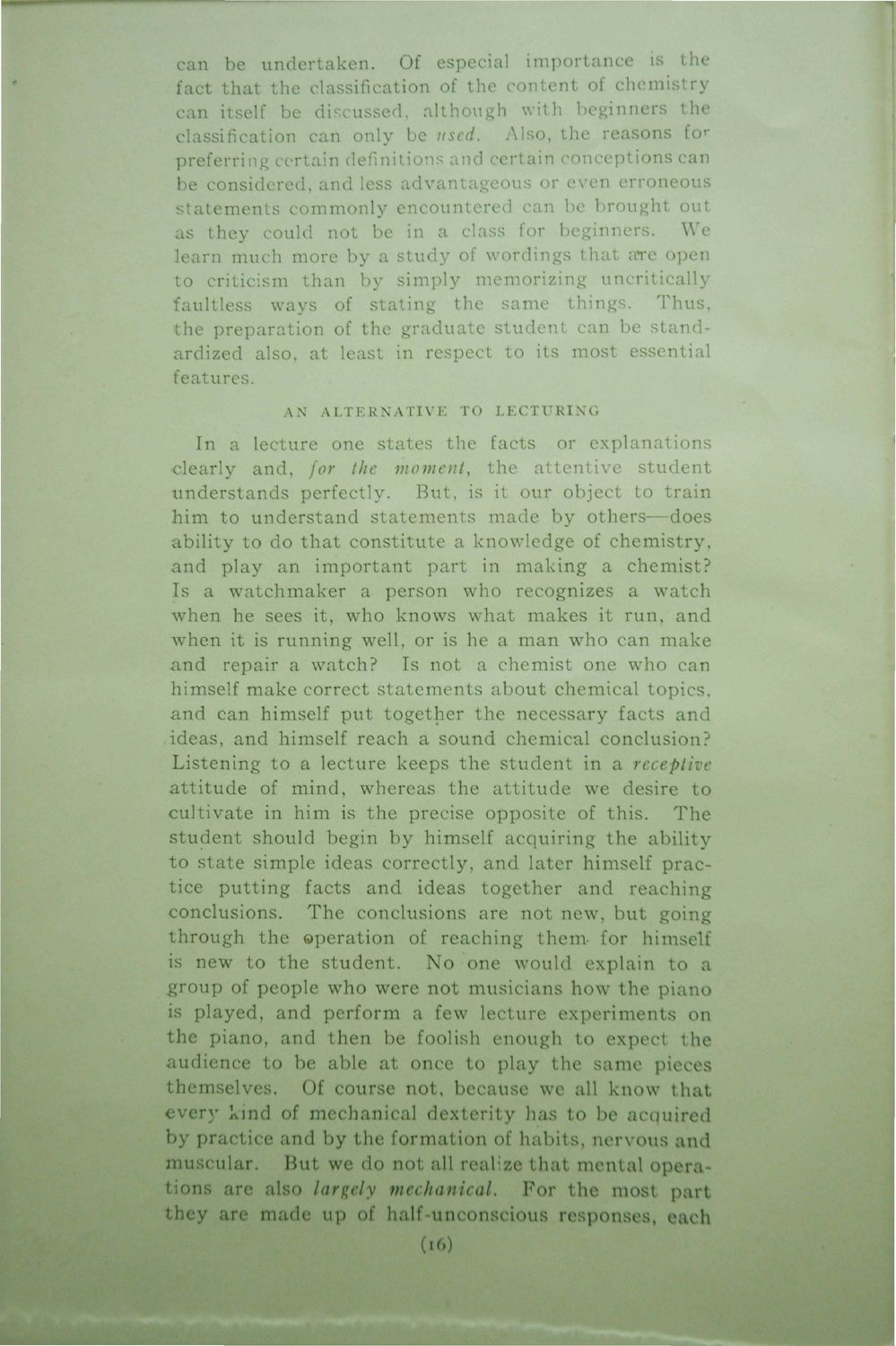| |
| |
Caption: Dedication - New Chemistry Building
This is a reduced-resolution page image for fast online browsing.

EXTRACTED TEXT FROM PAGE:
can be undertaken. Of especial importance is the fact that the classification of the content of chemistry can itself be discussed, although with beginners the classification can only be used. Also, the reasons for preferring certain definitions and certain conceptions can be considered, and less advantageous or even erroneous statements commonly encountered can be brought out as they could not be in a class for beginners. We learn much more by a study of wordings that are open to criticism than by simply memorizing uncritically faultless ways of stating the same things. Thus, the preparation of the graduate student can be standardized also, at least in respect to its most essential features. AN A L T E R N A T I V E TO LECTURING In a lecture one states the facts or explanations clearly and, for the moment, the attentive student understands perfectly. But, is it our object to train him to understand statements made by others—does ability to do that constitute a knowledge of chemistry, and play an important part in making a chemist? Is a watchmaker a person who recognizes a watch when he sees it, who knows what makes it run, and when it is running well, or is he a man who can make and repair a watch? Is not a chemist one who can himself make correct statements about chemical topics, and can himself put together the necessary facts and ideas, and himself reach a sound chemical conclusion? Listening to a lecture keeps the student in a receptive attitude of mind, whereas the attitude we desire to cultivate in him is the precise opposite of this. The student should begin by himself acquiring the ability to state simple ideas correctly, and later himself practice putting facts and ideas together and reaching conclusions. The conclusions are not new, but going through the operation of reaching them- for himself is new to the student. No one would explain to a group of people who were not musicians how the piano is played, and perform a few lecture experiments on the piano, and then be foolish enough to expect the audience to be able at once to play the same pieces themselves. Of course not, because we all know that every kind of mechanical dexterity has to be acquired by practice and by the formation of habits, nervous and muscular. But we do not all realize that mental operations are also largely mechanical. For the most part they are made up of half-unconscious responses, each (16)
| |